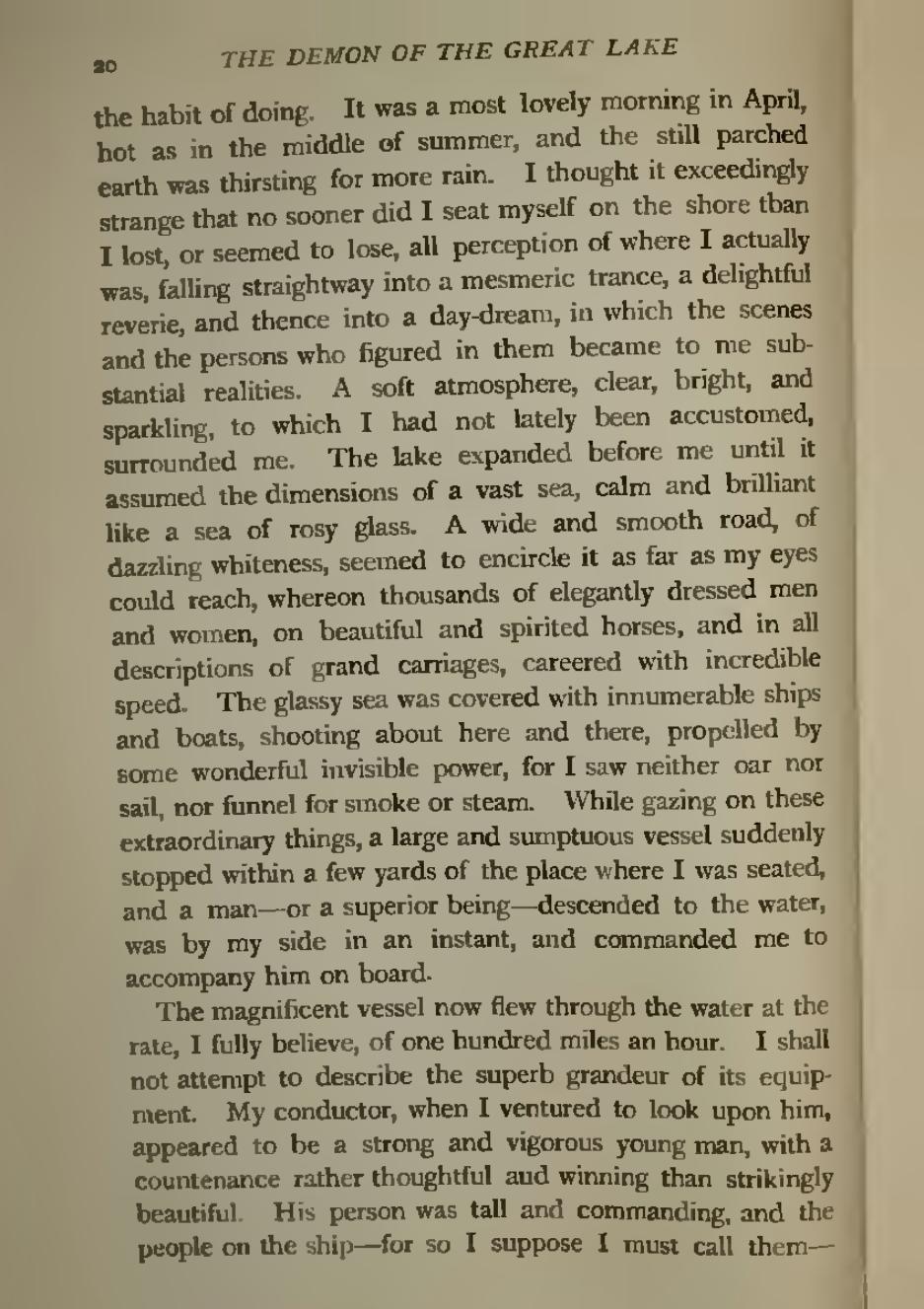the habit of doing. It was a most lovely morning in April, hot as in the middle of summer, and the still parched earth was tasting for more rain. I thought it exceedingly strange that no sooner did I seat myself on the shore than I lost, or seemed to lose, all perception of where I actually was falling straightway into a mesmeric trance, a delightful reverie, and thence into a day-dream, in which the scenes and the persons who figured in them became to me substantial realities. A soft atmosphere, clear, bright, and sparkling, to which I had not lately been accustomed, surrounded me. The lake expanded before me until it assumed the dimensions of a vast sea, calm and brilliant like a sea of rosy glass. A wide and smooth road, of dazzling whiteness, seemed to encircle it as far as my eyes could reach, whereon thousands of elegantly dressed men and women, on beautiful and spirited horses, and in all descriptions of grand carriages, careered with incredible speed. The glassy sea was covered with innumerable ships and boats, shooting about here and there, propelled by some wonderful invisible power, for I saw neither oar nor sail, nor funnel for smoke or steam. While gazing on these extraordinary things, a large and sumptuous vessel suddenly stopped within a few yards of the place where I was seated, and a man—or a superior being—descended to the water, was by my side in an instant, and commanded me to accompany him on board.
The magnificent vessel now flew through the water at the rate, I fully believe, of one hundred miles an hour. I shall not attempt to describe the superb grandeur of its equipment. My conductor, when I ventured to look upon him, appeared to be a strong and vigorous young man, with a countenance rather thoughtful and winning than strikingly beautiful. His person was tall and commanding, and the people on the ship—for so I suppose I must call them—
